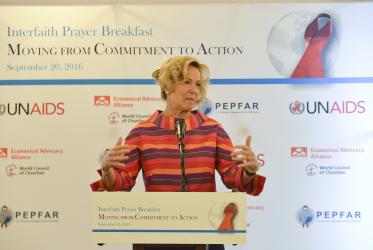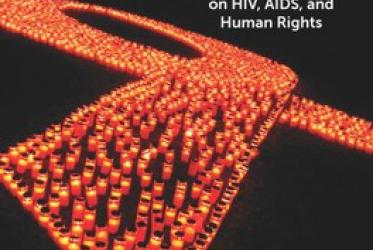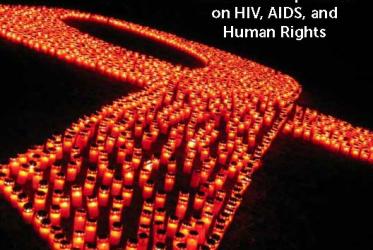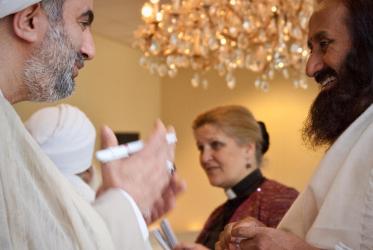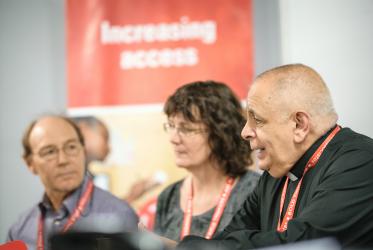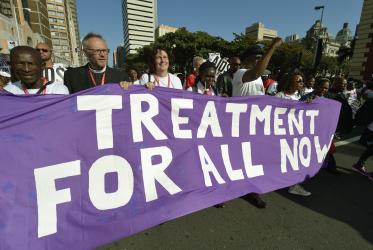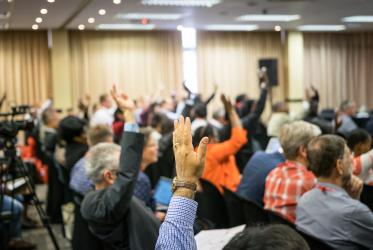Displaying 141 - 160 of 281
20 October 2016
Kenya: Voice of faith communities crucial in overcoming HIV
14 October 2016
Faith-based groups bring hope for a fast-track HIV response
20 September 2016
Interfaith prayer breakfast - moving from commitment to action
19 September 2016
WCC book featured in UN discussion on gender, religions and health
16 September 2016
Honest talk blossoms between youth, theologians in Cote d’Ivoire
14 September 2016
Keeping the Faith in Development: Gender, Religion and Health
20 September 2016
Salvation Army Auditorium, New York City, United States
AIDS 2016: Coverage of faith response to HIV
22 July 2016
Children are being let down over HIV care
17 July 2016
AIDS 2016: “Stigma kills more people than HIV”
17 July 2016


